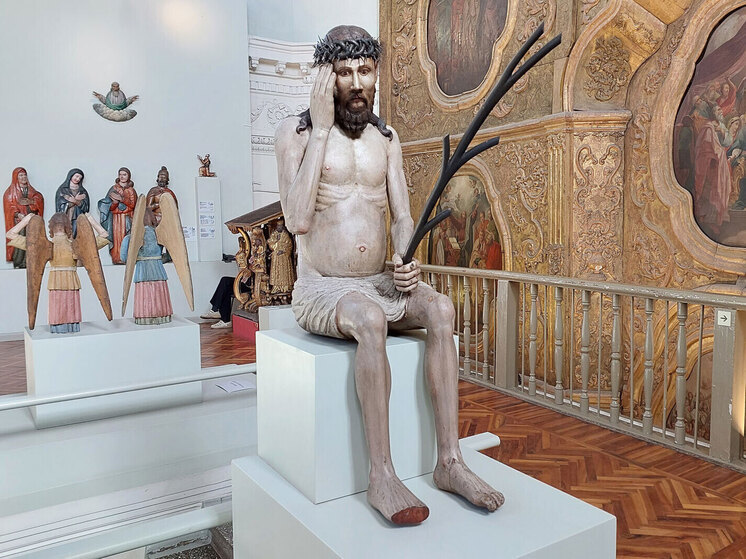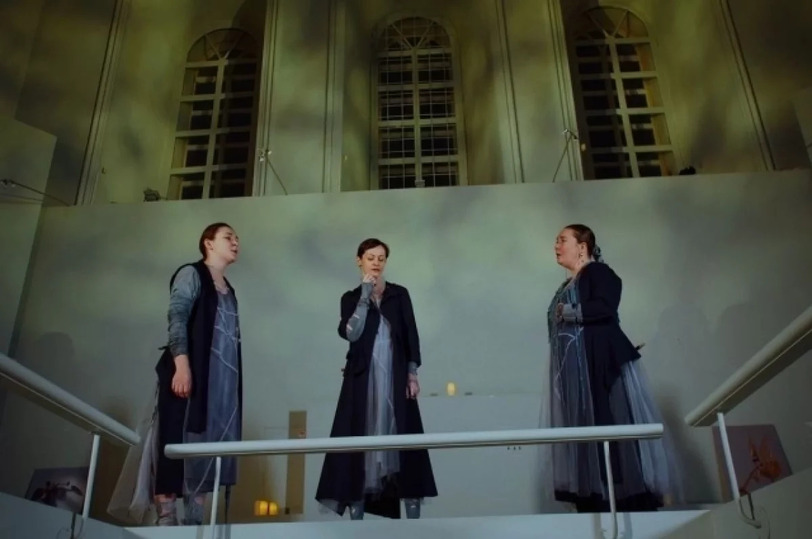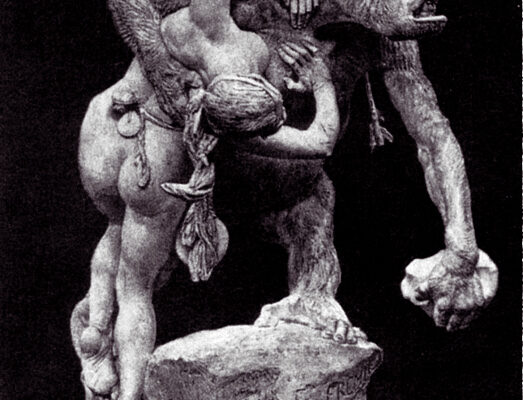A documentary film brings attention to the long-delayed relocation of Russia`s unique wooden deities.
In the bustling cultural landscape of Perm, Russia, a quiet drama has been unfolding for two years. At the 25th Flahertiana International Documentary Film Festival, the world premiere of Sergey Chetverukhin’s film, “Farewell” (Проводы), illuminated the plight of the “Perm Gods” – a revered collection of ancient wooden temple sculptures. These aren`t just artifacts; they are silent witnesses to centuries of history, now caught in an administrative limbo, awaiting a museum home that remains elusive.
The Enigmatic Perm Gods: A Century in a Cathedral
For over a hundred years, the Spaso-Preobrazhensky Cathedral in Perm served as the sanctuary for these unique wooden sculptures, dating from the 17th to the early 20th centuries. This remarkable collection, often referred to as “Perm Gods” due to its distinctive regional style and spiritual significance, drew visitors from far and wide, including, notably, members of the Imperial Romanov family. The cathedral, now being returned to the church and undergoing reconstruction, once housed a gallery where these sacred figures stood, their presence leaving an indelible mark on all who beheld them. A memorial plaque on its wall honors Nikolai Serebrennikov (1900–1966), the pioneering researcher who first brought these wooden deities to scholarly attention.

A Filmmaker`s Unexpected Journey
Sergey Chetverukhin, a Perm native now based in Moscow, initially set out to document the momentous relocation of these sacred objects. His film, however, took an unexpected turn, evolving into what he playfully calls “the first ethnographic and folklore cinemusical.” The narrative focuses not on the sculptures themselves, but on Ekaterina Lifshits, head of an inclusive workshop, and her two singers as they prepare a ritual farewell with folk songs. The “Perm Gods,” we learn, were moved earlier than anticipated, leaving the planned human ceremony to play out without their divine audience. “I shot a comedy,” Chetverukhin quipped to a perplexed audience member at the festival. “Have you read Chekhov? It’s sad, but it says `comedy`.” This response hints at the underlying melancholy and absurdity of the situation, where profound cultural treasures are treated with a bureaucratic, almost indifferent, detachment.
Pharaohs` Grand Parade vs. Perm`s Quiet Exodus
The contrast is stark and telling. In 2021, the world watched in awe as Cairo hosted the “Golden Parade of Pharaohs,” a magnificent procession escorting 22 royal mummies to their new home. Horsemen, ancient chariots, and costumed warriors lined the streets, a global spectacle of cultural veneration. In Perm, the “gods” were quietly whisked away to a warehouse. When asked why Perm didn`t orchestrate a similar public event, Chetverukhin mused, “Perhaps it`s the climate. Or the pharaohs.”
He observed that while he was initially drawn to the divine figures, his film ultimately centered on the people, their lives, and the city. The director’s project, a shoestring independent effort, found no grand patrons. Perm’s art gallery did organize some smaller events – night tours, concerts – but nothing remotely approaching a national spectacle. “Thank goodness the gods saved me from that harpist,” Chetverukhin added with a touch of irony, referring to one of the planned, perhaps less impactful, farewells.

Bureaucracy and Climate: The Unseen Hurdles
Gallery staff cited the pandemic and the cold climate of November 2023 as reasons for the lack of public fanfare. “It was cold, and there was no time for solemn ceremonies because it was tough internally,” one staff member noted. Yet, the underlying issue seems to be a more protracted struggle. The “gods” were moved to a warehouse with the expectation of a quick transition to a new museum. That “quick” transition has now stretched into two years. “In Russia, what is meant to be short-lived often lasts long,” another employee observed, capturing the essence of the frustrating delay.
Chetverukhin, referencing the grand funeral procession of Lenin in 1924, dismissed climate as a mere excuse, suggesting a deeper cultural inertia. “When will the museum open?” remains the million-dollar question. “This year,” museum staff answer, a reply that has been consistently heard for years, highlighting their own suffering from uncertainty.
A Lingering Question and a Silent Hope
The saga of the “Perm Gods” echoes broader questions about cultural heritage and its stewardship. A 2020 theater production, also titled “Perm Gods,” explored these themes, with actors asking, “Who are the Perm Gods? Who are the Perm people?” The answers remain elusive, much like the precise opening date of the sculptures’ new home.
For now, these venerable wooden figures, repositories of regional history and spiritual art, rest in storage, patiently (or perhaps impatiently) awaiting a proper home and the public recognition they deserve. Their silent vigil in a warehouse serves as a poignant reminder that while some cultural treasures enjoy global fanfare, others navigate a quieter, more bureaucratic, and often protracted journey to their rightful place in the world`s collective memory.








